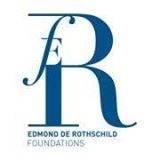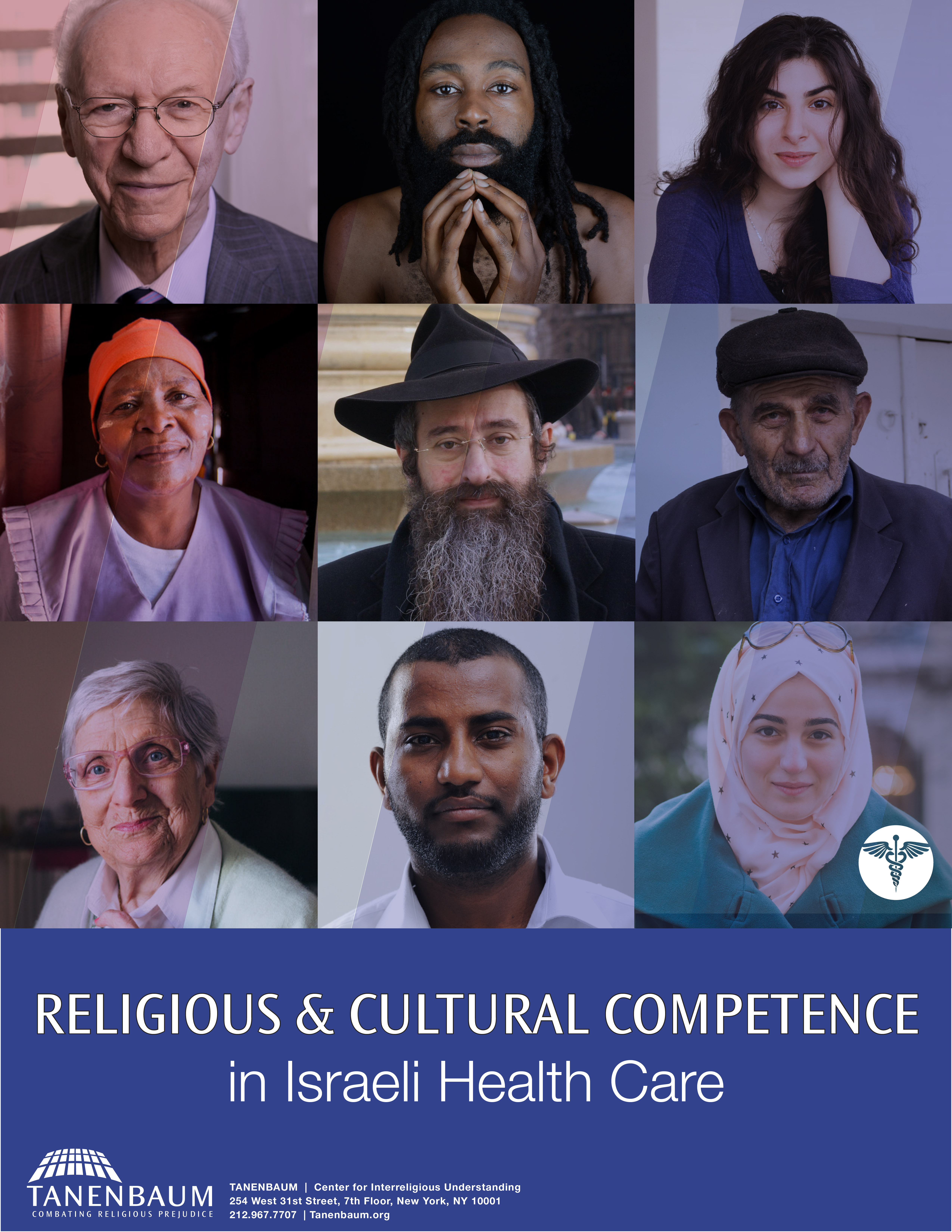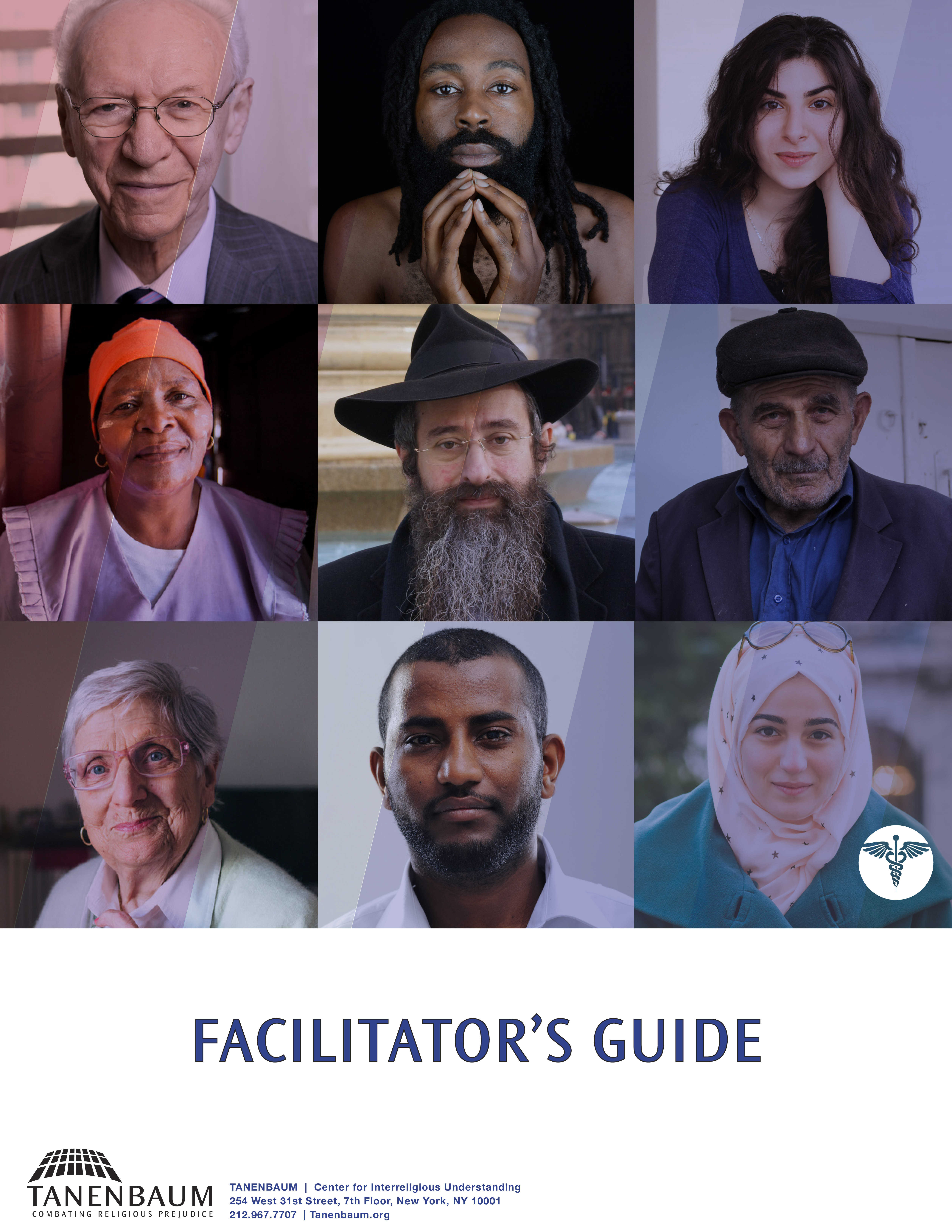Israel is a country where religion plays an important role in many people’s lives, and where there is great diversity among and within religious traditions. As a result, religious identity is a key social factor that can affect patients’ health care preferences, as well as the care they receive. While many providers in Israel recognize these issues, training and resources are sparse.
Tanenbaum, in collaboration with Three Faiths Forum Middle East, has therefore developed cutting-edge materials designed to support Israeli health care providers and institutions in providing religio-culturally competent care for patients from across the spectrum of religious backgrounds and practices.
ASSESSMENT REPORT
What is the current state of religio-cultural competence in Israeli health care? Through a series of in-depth interviews with health care providers and cultural competence experts, Tanenbaum surveyed what is currently in place to care for diverse patient populations. We then recommended approaches for making patient care even better. Our findings are available in English, Hebrew and Arabic.
Download the Assessment Report in Arabic
Download the Assessment Report in English
Download the Assessment Report in Hebrew
FACILITATOR’S GUIDE
How can health care providers deliver more culturally competent care? This PowerPoint deck and accompanying Facilitator’s Guide present specific examples that illustrate when religion comes up in patient care, together with concrete strategies for addressing this dynamic when it arises. This resource, available in both English and Hebrew, is designed for self-learning and/or for medical educators who want to train others.
Download the Facilitator’s Guide in English
Download the Facilitator’s Guide in Hebrew
Made possible with the generous support of the Polonsky Foundation & the Sternberg Foundation
© 2014 Tanenbaum | Center for Interreligious Understanding
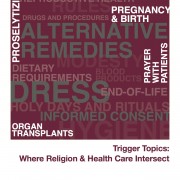 Where does religion come up in a patient’s decision-making process and what should doctors do about it? This learning module outlines 15 different areas within health care where religion emerges and offers a wide variety of case study examples that can be used for discussion and learning.
Where does religion come up in a patient’s decision-making process and what should doctors do about it? This learning module outlines 15 different areas within health care where religion emerges and offers a wide variety of case study examples that can be used for discussion and learning.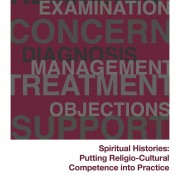 How and when should health care providers ask patients about their religious beliefs and what should they do with the information? This learning module provides concrete guidelines and strategies in answer to these questions as well as case study discussions and role-play activities to reinforce this learning.
How and when should health care providers ask patients about their religious beliefs and what should they do with the information? This learning module provides concrete guidelines and strategies in answer to these questions as well as case study discussions and role-play activities to reinforce this learning.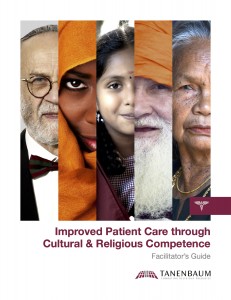 Improving Patient Care through Religious and Cultural Competence: A Training Program for Residents
Improving Patient Care through Religious and Cultural Competence: A Training Program for Residents